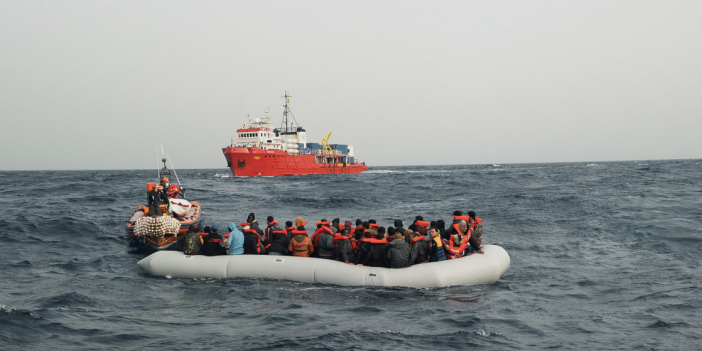Under a new proposal from the European Commission, non-EU nations who refuse to make arrangements to take back undocumented migrants with a failed asylum claim may have their import tariffs increased, reports the Financial Times.
The move follows years of anti-migrant sentiment which has swept across Europe. The right and the far-right have long attacked the European Union’s migration policy, which it views as been a failure. Far-right politicians frequently target nations in Africa and the Middle East for their failure to 'repay' European asylum efforts, and take back migrants who have been refused a stay.
In 2022, irregular migration is expected to increase. According to the EU border agency Frontex, this year has recorded a significant increase in attempted irregular migration into Europe.
Of the 396,000 migrants refused a stay Europe in 2020, only 70,00 returned home. Before the pandemic in 2019, only 29% equally returned home. Increased migrant flows into Europe have meant more unsuccessful refugee candidates, and more people waiting to be sent home.
Punitive trade tariffs
It appears that the European Commission is now acting to assuage some of the right’s anti-migration agenda. Brussels proposes punitive trade tariffs to encourage mostly sub-Saharan nations to make arrangements to take back migrants.
African nations such as Mali, Senegal, and Guinea have extremely low return rates for those with failed claims. If the European plans are approved, these nations would be hit by trade tariffs such as 12% on cotton shirts, and 24% on tinned tuna.
The Commission says that there is an urgent need for it to tighten its migration policy. Officials state that returning migrants will prevent brain drain in developing countries and discourage dangerous crossings.
However, this proposal has already been hit with significant backlash, as it would potentially target some of the poorest countries in the world. Even the MEP responsible for passing the legislation through the European Parliament has expressed doubts.
"Toxic" proposal
In a comment to the Financial Times, Finnish green politician and Vice-President of the European Parliament Heidi Hautala described the legislation as “toxic” and called for any links to migration to be dropped. The Finnish politician also objected to the use of trade as a weapon in combating migration.
The proposed plans by the Commission will change some of the terms set out by the EU’s progressive Generalised Scheme of Preference (GSP) legislation, which removes or heavily limits tariffs on poor and lower-middle income nations, especially in Africa.
Related News
- Undocumented migrants to leave tent camp in Molenbeek
- Tackling illegal stays: Four new migrant deportation centres
The European Commission's proposal would allow for nations to be removed from the free-trade scheme over their failure to accept deported citizens.
Around 50 of the world's poorest countries have nearly zero tariffs on goods, except for weapons and ammunition. 19 other countries enjoy partial or full reductions of custom duties on around 66% of tariff lines.
There are some conditions to GSP support. Participating nations must abide by numerous international labour and human rights treaties, or lose benefits.
"The new punitive trade measures on irregular migration taints the goals of the GSP, which are about eliminating poverty and promoting sustainable development," says Hautala.
Hautala told the Financial Times that MEPs will vote on 25 April for amendments on the proposal, which is aimed at emphasising co-operation in managing migration.
Belgium has also decided to act tough on undocumented migrants. In March, the Federal Government approved the creation of four centres for the forced return of migrants, increasing Belgium’s expulsion capacity to nearly 1,145 places.

